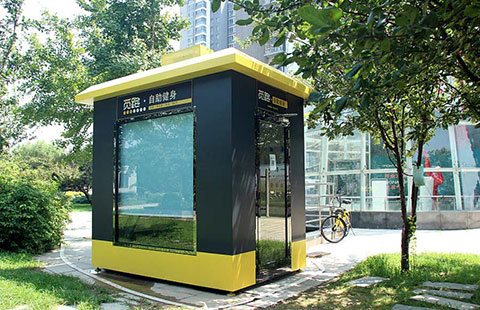China's home prices continue to stabilize on tough controls
BEIJING - China's property market continued to show signs of cooling as home prices faltered or posted slower growth in major cities following tough purchase restrictions, official data showed Friday.
On a yearly basis, of the 70 cities surveyed in July, the pace of new home price growth slowed in 15 major cities compared with the same month last year, the National Bureau of Statistics (NBS) said.
On a month-on-month basis, new home prices fell or remained flat in 14 cities in July, up from 10 in June, according to the NBS data.
In Beijing, Nanjing and Shenzhen, new residential home prices fell in July from a month earlier, while Shanghai and Hangzhou saw prices unchanged.
Year on year, home prices in Beijing and Shanghai rose 8.9 percent and 7.3 percent in July, respectively.
"The data show a notable stabilization in prices due to the government's differentiated control policies," said NBS statistician Liu Jianwei.
Liu said current property market regulations focus on easing home price surges in large cities while de-stocking supply gluts in small cities.
Friday's data came after NBS statistics showed Monday that growth in property development investment further decelerated in the first seven months of the year.
China's investment in property development expanded 7.9 percent year on year in the first seven months of this year, down from 8.5 percent in the first half, NBS data showed.
Commercial housing sales measured by floor area rose 14 percent in the January-July period, down from 16.1 percent for the first half, according to the NBS.
The data add to evidence that China's property market boom is running out of steam as the government continues cooling measures to quash potential asset bubbles.
Rocketing housing prices, especially in major cities, had fueled concerns about asset bubbles. Since the end of 2016, dozens of local governments have passed or expanded their restrictions on house purchases and increased the minimum down payment required for a mortgage.
The market was also cooled by relatively tightened liquidity conditions in China as the government moved to contain leverage and risk in the financial system.
As China shifted its monetary policy to a prudent and neutral stance, liquidity pressure and intensified financial supervision forced financial institutions to tighten loan application reviews, rein in mortgage loans and lift mortgage interest rates.
"Government cooling measures since the fourth quarter last year have gradually taken effect," said Yan Yuejin, senior researcher with E-house China R&D Institute.
Yan predicted that more cities will be included in the tightened regulation to achieve the country's overall goal of containing house prices and de-stocking.
Besides these policies, China should accelerate the establishment of a long-term mechanism to stabilize the property market, said Liu Hongyu, head of the real estate research institute at Tsinghua University.
Liu noted that a long-term mechanism, featuring increased land supply and a sound housing finance system, real estate tax system and urbanization infrastructure construction, should be established to ensure stable and healthy development of the real estate market.



















